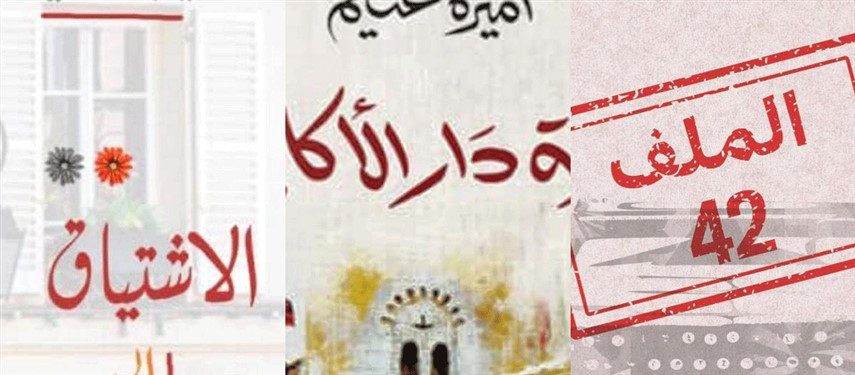The shortlisted authors are aged between 31 and 70 and represent Algeria, Iraq, Jordan, Morocco and Tunisia
Crimes against humanity at a time of war, the longing for one’s homeland and issues related to memory are among the themes featured in the shortlisted works for the International Prize for Arabic Fiction.
The shortlisted authors are aged between 31 and 70 and represent Algeria, Iraq, Jordan, Morocco and Tunisia. Each of the six shortlisted authors will receive $10,000.
The winner, who will be announced during an online ceremony on Tuesday, May 25, will receive an additional $50,000.
The shortlist for the 14th iteration of the award was revealed by Lebanese poet Chawki Bazih, who served as this year’s chair of judges, at an online event hosted on the Ipaf Facebook page. He appeared at the event alongside the prize’s administrator, Fleur Montanaro.
“The most obvious thing revealed by an in-depth examination of the six shortlisted novels is how the authors move away from the limits of the ego and are resourced by their ancestral roots, mother countries and collective memory,” Bazih said in a statement.
“Their subjects may not be entirely new, since the Arab present is an exact copy of its past. However, what makes these works unique is something other than their subjects. It is their stylistic richness and power to astonish readers, making them catch their breath; their well-constructed, suspenseful plots; their successful deployment of folklore and the collective imagination, and their deft use of language, both flowing and tight.”
The Eye of Hammurabi by Algerian author Abdulatif Ould Abdullah opens with the interrogation of a man in a military encampment after he flees from the angry inhabitants of Douar Sidi Majdoub. This district in the town of Mostaganem, Algeria, is named after a Muslim saint whose tomb he and his German friend raided for ancient artefacts. The novel follows the man’s efforts as he seeks to clear his name from charges that range from conspiracy with foreign organisations to murder.
2. ‘Notebooks of the Bookshop Keeper’, Jalal Bargas
Set between 1947 and 2019, this novel by Jordanian poet Jalal Bargas is structured as several notebooks written by people facing different hardships. Some are on the verge of losing their homes, others are trying to find their families. The novel’s central character is Ibrahim, a bookshop keeper who attempts suicide, before meeting the woman who will change his life.
3. ‘The Calamity of the Nobility’, Amira Ghenim
The Calamity of the Nobility by Amira Ghenim relates an important, untold story from Tunisia’s contemporary history. Its hero is a historical figure, the reformer Tahar Haddad. Although references do not mention anything about his relationship with women, except for his desperate defence of them, the author adds an imaginary love affair with a woman called Lella Zubaida to her fictional retelling of his life. The novel gives prominence to the voices of female narrators as custodians of memory who contradict a distorted, patriarchal version of history.
4. ‘The Bird Tattoo’, Dunya Mikhail
The Bird Tattoo by Iraqi poet Dunya Mikhail is a painful novel about the sale of Yazidi women in Iraq by ISIS. It focuses on Helen and Elias, who fall in love and marry, and their experiences with the organisation. Alongside this tragedy, the novel sheds light on aspects of Yazidi folklore, which is rich in astonishing customs and legends.
5. ‘File 42’, Abdelmeguid Sabata
File 42, written by Moroccan author Abdelmeguid Sabata, follows two parallel storylines. In the first, Christine, a successful American novelist, and Rasheed, a young Moroccan researcher, embark on an investigation to find the unknown author of a forgotten Moroccan novel from 1989, in which Christine’s father, Steve, appears as one of the characters. The second plot line is narrated by Zuheir, a rich and delinquent teenager who rapes an underaged maid.
6. ‘Longing for the Woman Next Door’, Habib Selmi
Tunisian author Habib Selmi’s novel revolves around two neighbours with wildly different personalities and from polar opposite social backgrounds. The story explores the rich, turbulent and extraordinary relationship they develop.




